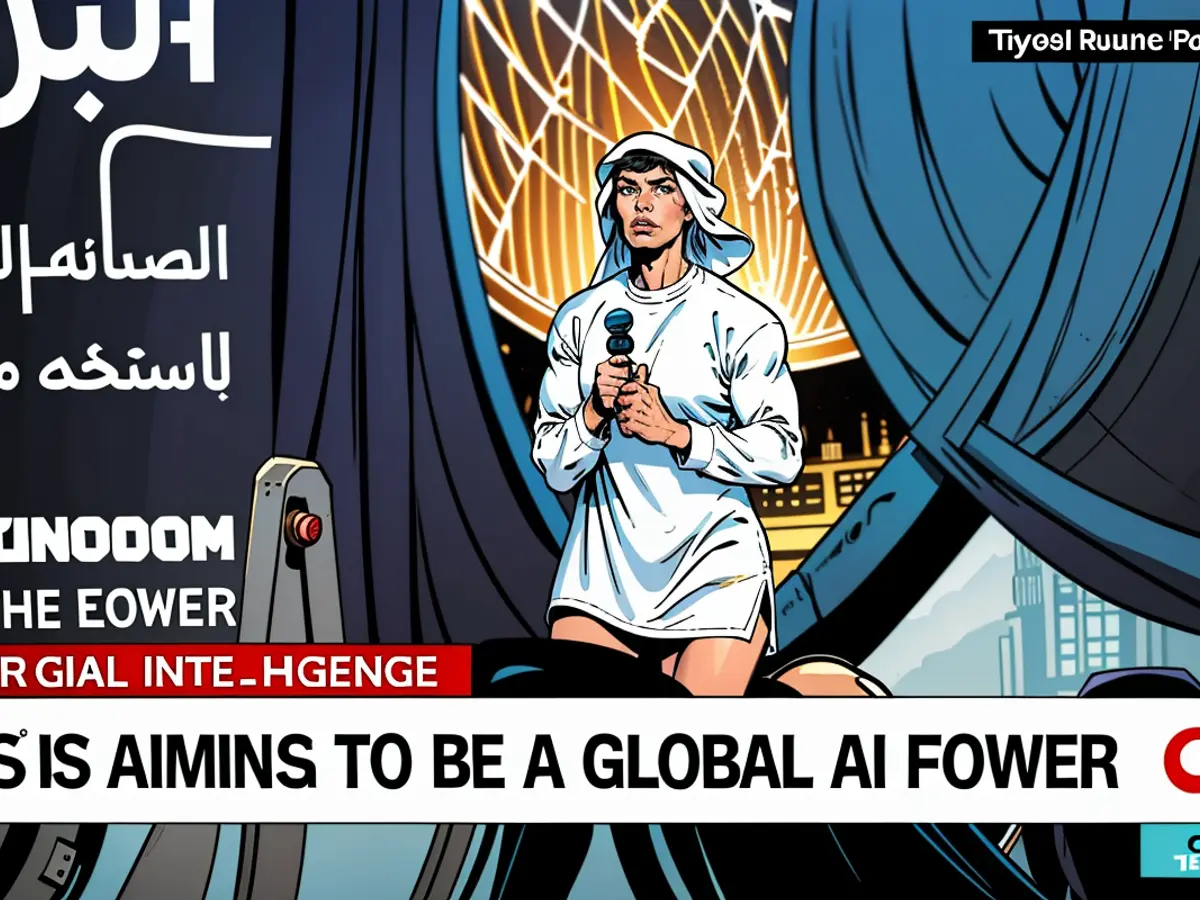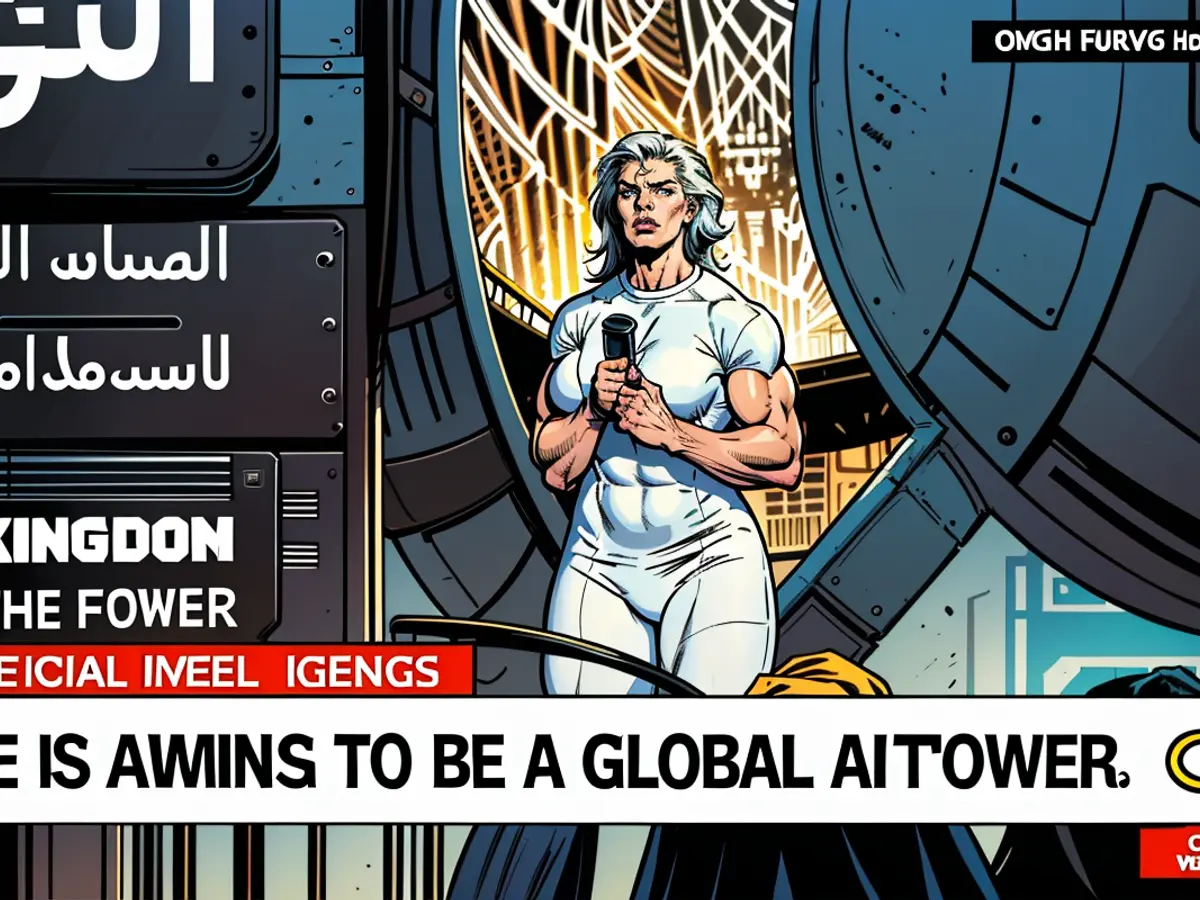Abu Dhabi, the oil-wealthy emirate, aims to dominate AI technology. Partnering with the US is merely an initial step in their ambitious AI-focused strategy.
In April, Microsoft announced a $1.5 billion investment in G42, an AI organization situated in Abu Dhabi, UAE, led by a prominent member of the ruling royal family.
This investment, according to analysts, was driven by the Biden administration's aim to curb China's influence in the region as America strives to preserve its lead over China in the AI race. This move effectively drew Microsoft into the American sphere of influence.
Omar Al Olama, the UAE's AI Minister, emphasized the shared vision between the UAE and US regarding the advancement of these technologies, stating, "I think we're going to see more alignment there."
G42, a conglomerate of seven companies, operates across data centers, energy, healthcare, surveillance, and biotechnology. Its major shareholder is Tahnoun bin Zayed Al Nahyan, who also serves as the UAE's national security adviser.
The UAE, a significant producer of fossil fuels, views its AI push as essential for diversifying its economy away from oil. AI could contribute $96 billion to the UAE's economy by 2030, equivalent to nearly 14% of its GDP, according to a report by PwC Middle East.
Olama aspires to make the UAE a global leader in artificial intelligence by 2031 and has outlined a national strategy to achieve this goal. Objectives include deploying AI in priority sectors, developing an ecosystem, attracting talent, and training public officials in AI.
The UAE currently employs 120,000 people in AI or related fields, a figure that has doubled since 2021.
Choosing Sides
At times, the country has had to privilege its relationship with the US over Washington's rivals.
A US Congressional committee urged the Commerce Department in January to investigate G42's connections to Chinese military companies and intelligence services (G42 vehemently denied any such affiliations), and the Microsoft investment reportedly mandated G42 to sever ties with Chinese hardware suppliers, including Huawei, in favor of American companies.

"The US does not back down from stating that 'on this technology specifically you need to choose sides,'" said Olama.
The UAE has traditionally navigated a delicate foreign policy balance. It collaborates with the US on a range of issues, including defense, and in recent years, the US has sold billions of dollars worth of military equipment to the Gulf nation.
The Biden administration, which views maintaining a lead in AI as crucial for future economic success and national security, has implemented measures such as export controls on AI and semiconductor technologies to slow China's progress in the industry.
Washington has also restricted the sale of advanced US chips to prevent China from using Middle Eastern nations as a backdoor to access the most recent AI technology, according to Reuters.
Nvidia, the world's third-largest company after Microsoft and Apple, revealed in an August 2023 regulatory filing that the US government had informed the chipmaker that some of its products would face additional licensing requirements for "certain customers and other regions, including some countries in the Middle East."
Some US politicians have expressed concerns about the G42-Microsoft deal, questioning the level of detail provided and the potential vulnerability of US technology to Chinese espionage in the UAE, given the country's ties with China, a key trade partner.
Olama maintains that the UAE is a reliable partner. "I truly believe there is no risk, especially since there's a lot of cutting-edge American technology present in the UAE," said Olama, stressing that his comments were made in a personal capacity, not as a government official.
'A Leading Tech Power'
In late 2023, Abu Dhabi's government-funded Technology Innovation Institute unveiled Falcon10B, a large language model (LLM) used in generative AI chatbots, outperforming offerings from Google and Meta in some aspects.

"The UAE marked its stance in the AI race with Falcon," James Lewis, a technology expert at the Center for Strategic and International Studies, told CNN.
In October 2023, a collaboration between Abu Dhabi's Mohamed bin Zayed University of Artificial Intelligence, Silicon Valley-based Cerebras Systems, and Inception, a subsidiary of G42, produced Jais, a generative AI model trained in both Arabic and English. Its creators suggest it could pave the way for LLMs in other underrepresented languages in the AI realm.
Unlike ChatGPT and Google's Gemini, Falcon and Jais are open-source, making their code accessible to anyone for use or modification. By opening up the technology, Abu Dhabi is positioning itself as an ally to developing nations lacking the resources to create their own AI tools.
"We understand that not every country can develop these systems or these tools," said Olama. "So, we want to ensure we're able to develop them for them."
"According to Lewis, it's all about money - it provides an advantage for being among the dominant forces in tech's future.
The looming specter of AI raises concerns, leading Olama to advocate for a unified effort to control AI's progression.
The dangers are dire. In March, a report sponsored by the US State Department forewarned that the cutting-edge AI systems might, under the worst circumstances, pose a catastrophic threat to human existence.
Olama shares certain apprehensions. He fears deepfakes could trigger a "truth crisis" and escalate a "political crisis." Additionally, he's uneasy about the possibility of AI simplifying the creation of biotech weapons.
"I strive not to be an alarmist," he admitted, "but there aren't many barriers in place to prevent these scenarios from unfolding.""


Read also:
The investment by Microsoft in G42, an AI organization in Abu Dhabi, is aimed at strengthening their position in the AI market and aligning with the UAE's ambitious AI strategy. This business decision also serves to distance Microsoft from Chinese influence in the region.
During a discussion, Olama, the UAE's AI Minister, acknowledged the importance of choosing sides in the tech industry and emphasized the UAE's commitment to using American technology in its AI advancements.








